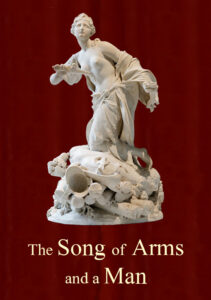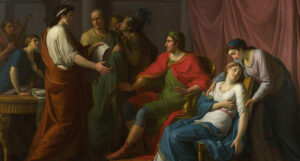The voices of ancient literature
The ancient texts of Greece and Rome are a source of inspiration, their survival itself a thing of wonder, which is easy to overlook in our digital age of effortless replication. Their development of writing has given us access to their ideas and literature, and their languages have long been regarded as the bedrock of literacy. Latin littera gave us the word ‘letter’, via French, and more directly a host of others (‘literal’, ‘literary’, etc).
Yet what is easily lost in Latin’s centuries-old confinement to books and stone memorials is the very thing which made it so special: its voice. Classical Latin literature was in its day a treat for the ear. Even those who were rich enough to learn to read would hear poems of Virgil and Ovid read aloud. Long after poetry was first written down it continued to be recited — and to some extent performed — before public audiences. There were more private readings too: we are told that Virgil read draft lines of the Aeneid to Augustus and his sister Octavia; and Virgil’s friend Horace sought a more limited audience for his Odes.
Traditionally poets were public performers, along with orators, storytellers, historians, actors, singers, dancers, flute-players, jugglers and whoever else. If, as is likely, oral presentations of poetry reached audiences far wider than the few who learned to read, it is no surprise that Augustus was keen to sponsor these poets. It also helps to explain why we know of so few female poets: women in ancient Rome were discouraged from addressing public gatherings of any kind. That they composed poetry is beyond doubt, but most of it has either been lost or bundled up with the work of male poets.
As poems were increasingly recorded on papyrus and distributed by booksellers, more people would read the text of a poem themselves; and some poems came to be composed which lent themselves less to public presentation, such as Ovid’s Fasti. However, it remained a very oral culture, and anyone intrigued by the poetry of a poet like Virgil, who has not heard him, has yet to start on their adventure.
George Sharpley
Chasing Shadows

Ukrainian shadow dancers bring to life Ovid’s Metamorphoses
____________________
The Song of Arms and a Man

The Latin Qvarter’s acclaimed performance of Virgil’s Aeneid
____________________
Latin voices

A selection of readings